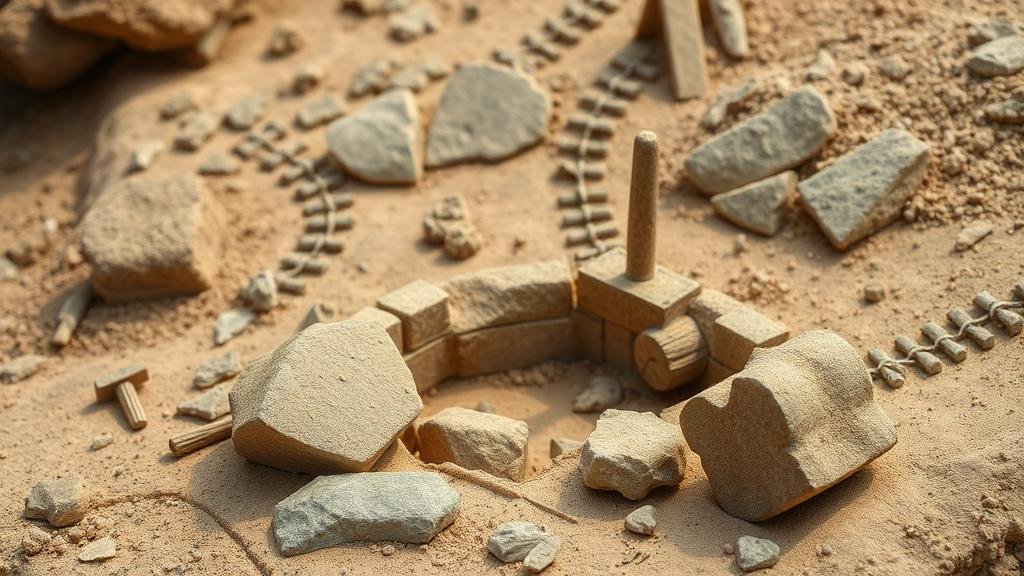The historical significance of accidental archeological discoveries.
The Historical Significance of Accidental Archaeological Discoveries
Accidental archaeological discoveries have profoundly shaped our understanding of human history. Often arising from chance encounters or routine activities, these findings can unlock chapters of the past that were thought long lost. This article explores some of the most notable accidental discoveries, their impact on archaeology, and their significance in reconstructing our historical narrative.
Notable Accidental Discoveries
Several archaeological discoveries fundamentally altered our understanding of ancient civilizations. occurred when individuals stumbled upon artifacts or ruins, leading to groundbreaking revelations.
- The Rosetta Stone (1799): Discovered by French soldiers during Napoleons campaign in Egypt, this granodiorite stele contained inscriptions in three scripts: hieroglyphic, Demotic, and Greek. Its significance lay in its role in deciphering Egyptian hieroglyphs, which had remained unreadable for centuries. The stone is now housed in the British Museum and continues to be a cornerstone of Egyptology.
- King Tutankhamun’s Tomb (1922): British archaeologist Howard Carter stumbled upon the tomb of the young Pharaoh in the Valley of the Kings during a search for the previously lost tomb of Nefertiti. tomb contained a wealth of artifacts and is often credited with sparking global interest in ancient Egypt. Its discovery revealed insights into burial practices and the opulence of the New Kingdom.
- The Terracotta Army (1974): Farmers digging a well near Xian, China, uncovered what would become the Terracotta Army, a vast collection of life-sized statues buried with China’s first Emperor, Qin Shi Huang. This discovery provided invaluable information about ancient Chinese art, military practices, and burial customs.
Impact on Archaeological Methodology
These accidental finds underscore the importance of serendipity in archaeology. highlight that significant discoveries often occur outside of planned excavations, prompting a reevaluation of how archaeologists conduct their research.
For example, the discovery of the city of Pompeii in 1748, initially noted by workers uncovering a different site, demonstrated the value of careful exploration and excavation. This led to the application of more systematic excavation techniques and further study of Roman life, architecture, and the catastrophic eruption of Mount Vesuvius in A.D. 79.
Cultural and Historical Relevance
Accidental discoveries have significant cultural importance, influencing public perception and awareness of historical events. often serve as a bridge connecting modern society with ancient cultures, allowing for a deeper understanding of shared human experiences.
For example, the discovery of the Dead Sea Scrolls in 1947 by a Bedouin shepherd in the Qumran Caves near the Dead Sea provided critical insights into Jewish history and early Christianity. The scrolls, dating back to the third century BCE, include some of the oldest known biblical texts and enhanced scholarly understanding of the socio-political landscape during that period.
Challenges and Considerations
While accidental archaeological discoveries can be enlightening, they also present challenges. Site preservation and ethical concerns regarding artifact retrieval often arise. Looting and improper excavation of sites can lead to irreversible damage.
- Site Preservation: Unplanned excavations might neglect documentation standards essential for scholarly study. The importance of context can be lost if artifacts are removed without proper recording.
- Ethical Considerations: Concerns about ownership and cultural heritage can become contentious. Local communities and indigenous groups may seek recognition and control over their ancestral lands and artifacts.
Real-World Applications
The impact of accidental discoveries extends beyond academic circles. can stimulate tourism, educational programs, and inspire a sense of pride among local communities. The Terracotta Army, for instance, attracts millions of visitors annually, contributing significantly to the local economy in Xian.
Also, such discoveries can influence contemporary art, literature, and popular culture, reinforcing the connection between past and present. The re-emergence of interest in Greek and Roman architecture due to findings in Pompeii has inspired countless modern buildings and public spaces.
Conclusion: Embracing Serendipity
The historical significance of accidental archaeological discoveries cannot be overstated. remind us that history is not solely accessed through meticulous planning but can also emerge unexpectedly, offering new perspectives on human civilization.
As we continue to explore the earth, it is crucial to embrace the principle of serendipity while maintaining respect for the artifacts and cultures encountered. Each accidental discovery serves as a testament to our shared past and reinforces the need for ongoing inquiry into the ancient world.
As you ponder the world around you, remember that history may lie just beneath the surface, waiting to be unearthed by chance–and that every discovery, accidental or not, has the potential to enrich our understanding of humanity.



